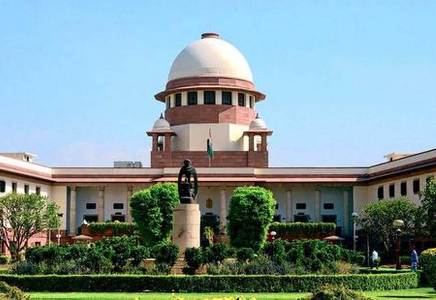A three-judge bench asked the Attorney General if the law is still needed after 75 yrs of Independence.
The Supreme Court on Thursday expressed concern over the "dispute" of the sedition law and called it "colonial law" which was used by the British to suppress the freedom movement and silence Mahatma Gandhi and Bal Gangadhar Tilak. A three-judge bench comprising Chief Justice of India N V Ramana, Justice A S Bopanna and Justice Hrishikesh Roy asked the Attorney General K K Venugopal if the law is still needed after 75 yrs of Independence.
The Apex Court issued notice on a petition filed by Major-General S G Vombatkere challenging the constitutionality of the sedition law under Section 124A of IPC, who in his petition called the law 'vague' which 'created a chilling effect on free speech,' reported Live Law. The CJI observed that the conviction rate under this law is very low and "alarming numbers of misuse" can be compared to a carpenter who uses a saw to cut a tree but ends up chopping the entire forest, according to Bar and Bench. The CJI citing the example of 66A of the Information Technology Act, under which "thousands of cases" were registered and people were arrested despite the fact that the provision was struck down, mentioned that the executing agency and the authorities misuse it.
The CJI said that he will look into all similar pending cases and hear all of them together. The top court noted that If some party doesn't want to hear the voice of another party, they may use this type of law and implicate other people which is a serious question for individuals. Earlier this year, another three-judge bench of Justices had issued a notice to the Centre in a petition filed by two journalists who challenged the validity of the provision for violation of freedom of speech and expression.




The Brief. Sign up to receive the top stories you need to know right now.